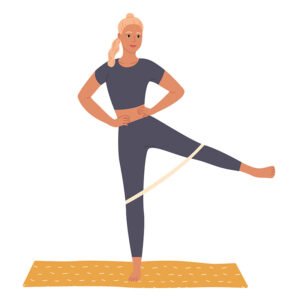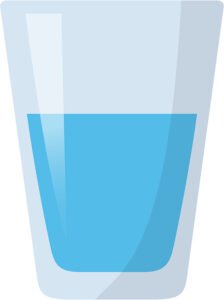By Deborah Jeanne Sergeant
 1. Avoid over-compensating for exercise.
1. Avoid over-compensating for exercise.
“When someone exercises, it makes someone hungrier and want to eat more,” said Mary Jo Parker, registered dietitian. “That’s compensating for expending calories through exercise. A lot of times, someone exercises and gets sucked into a reward cycle. Now they think they can feel freer to eat.”
 2. Stay patient.
2. Stay patient.
“Some people want to see results right away,” Parker said. “If they’re exercising at the same time, they could slow progress as they’re building muscle while losing fat. People get discouraged. If they want to see more immediate results, they’ll see more through cutting calories and exercise will help maintain weight loss.”
3. Count calories.
“Butter, oil, salad dressing and dips are calorie dense,” Parker said. “Minimize the extra, added calories.”
This includes caloric beverages also.
 4. Focus on produce.
4. Focus on produce.
“I typically recommend people emphasize things with the lowest calorie density, like filling up on vegetables,” Parker said. “Get 11 servings of fruits and vegetables a day, considering a serving is a half-cup.”
5. Shift eating away from fat and carbs.
“The first thing I talk with them about fat since it’s over double the calorie content of protein,” Parker said. “As a nation, we consume too many carbs and most of the time, I’d say it’s from processed foods and sweets and baked goods. Look at ways to trim that as well as checking how lean proteins are and making sure they’re as lean as they can get. Fatty fish is an exception.”
 6. Maintain a healthful diet.
6. Maintain a healthful diet.
“I’m always counseling on health as well as weight loss,” Parker said. “I don’t want people to cut calories in places where they’d get a great nutritional benefit, like nuts and fatty fish, but people need to watch portions. Weighing and measuring works in terms of altering people as to how much they’re consuming.”
 7. Stay hydrated.
7. Stay hydrated.
“Drink enough water or other healthful non caloric beverages,” Parker said. “Many times, people are thirsty, not hungry.”
Oftentimes, craving sweet or salty foods means thirst, not hunger.
8. Establish healthful habits.
“The beautiful thing about weight loss and behavior changes is that the brain is plastic,” Parker said. “We have old habits that are difficult to break but we can make new habits. We can create new circuitry.”
 9. Find out what works.
9. Find out what works.
“You have to listen to your body; everybody is different,” Parker said. “I’ve worked with people who are elite professional athletes to weekend warriors and those who are just trying to lose weight by a slow, steady walk around the block. Everyone’s body is different.
“That’s why it’s really important to personalize it. You can read recommendations and follow any type of diet plan for endurance and weight loss. But, at the end of the day, you have to listen to your body and listen accordingly to perform optimally.”
10. Stay realistic.
“It’s important for people to know that even if they’re genetically predisposed to carrying more weight, it’s not a lost cause,” Parker said. “They really have to have a concerted effort on changing behaviors and having realistic expectations. Burning a fraction of a pound up to two pounds of fat a week is a reasonable goal. Depending on the size of the person, you’ll have other tissue burn as well but you want the majority of the tissue to be fat; you don’t want to lose muscle tissue.”
That’s why consuming sufficient protein is important.

